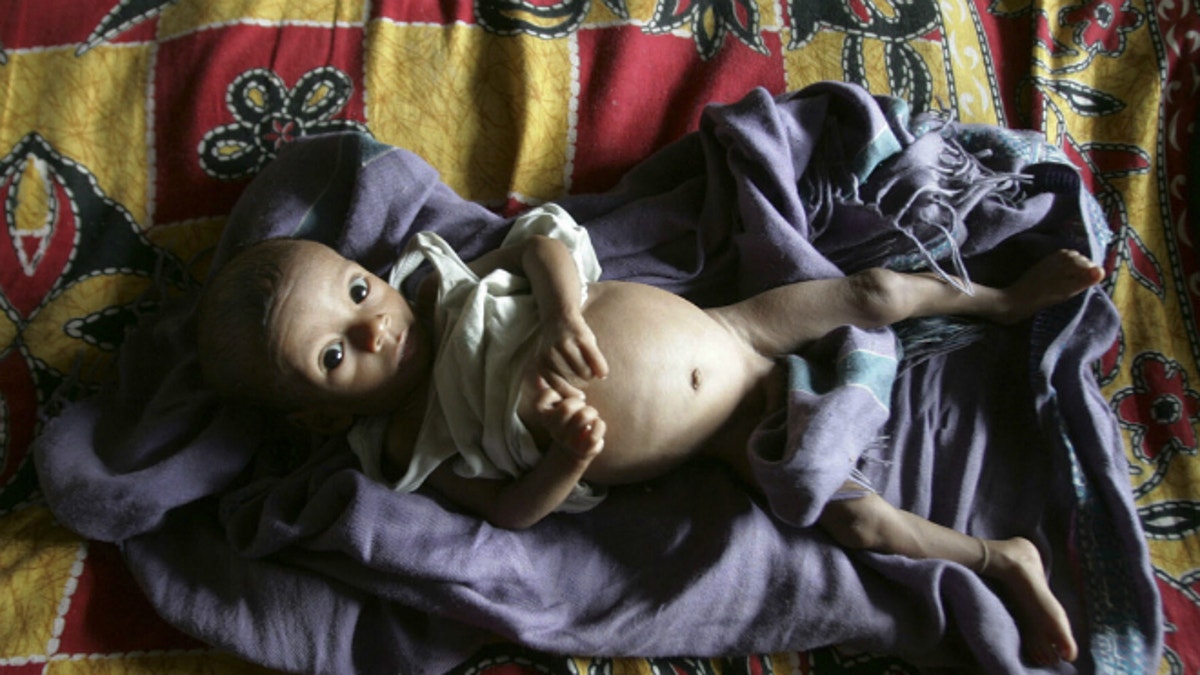
A five-month-old child with tuberculosis rests inside the tuberculosis ward of a hospital in India. (REUTERS/Rupak De Chowdhuri)
LONDON – Only 2 percent of people with the most severe cases of drug-resistant tuberculosis (TB) have access to the latest life-saving drugs because of their high price, the medical charity Medecins Sans Frontieres (MSF) said on Monday.
The price of bedaquiline and delamanid, two new drugs for treating TB which are recommended by the World Health Organization, should be reduced, by up to 98 percent in the case of delamanid, to make them more accessible to 150,000 patients who need them, MSF said.
"The potential of these new drugs means that I am seeing people with extensively drug-resistant TB walk out of the hospital who otherwise would be dead," said Yoseph Tassew, MSF medical coordinator for Russia.
"It's frustrating that after half a century, we finally have new TB medicines that can save the lives of the sickest patients, but we can't offer this hope to all people who could immediately benefit," he said in a statement.
Bedaquiline is marketed by U.S. pharmaceuticals firm Johnson & Johnson, while delamanid is marketed by Otsuka Pharmaceutical of Japan, MSF said.
In Armenia, which has one of the highest rates in the world of multi drug-resistant TB, 80 percent of patients who received a "strengthened" treatment containing bedaquiline, had no sign of the infection six months later, MSF said in a report.
In Russia the recovery rate was 75 percent, MSF said, adding that both were significantly above the 50 percent recovery rate for such patient using current TB treatments.
The WHO has said that multi drug-resistant TB is at "crisis levels", with about 480,000 new cases in 2013.
The problem is a manmade one, the WHO says, caused by regular TB patients being given the wrong medicines or doses, or failing to complete their course of treatment, which is highly toxic and can last up two years.
The WHO has said TB now rivals HIV/AIDS as a leading cause of death from infectious diseases.
The price of a single course of delamanid in developing countries is $1,700 per person, MSF said in a report analyzing access to treatments for drug-resistant TB.
While bedaquiline is available to a "fraction" of people in the poorest countries through a donation program, other countries may have to pay up to $3,000 per course, it said.
The price of current treatment for drug-resistant TB has fallen to between $1,800 and $4,600 now from $4,400 to $9,000 per person per course in 2011, and adding the new TB drugs to the existing ones would drive prices back up, MSF said.
